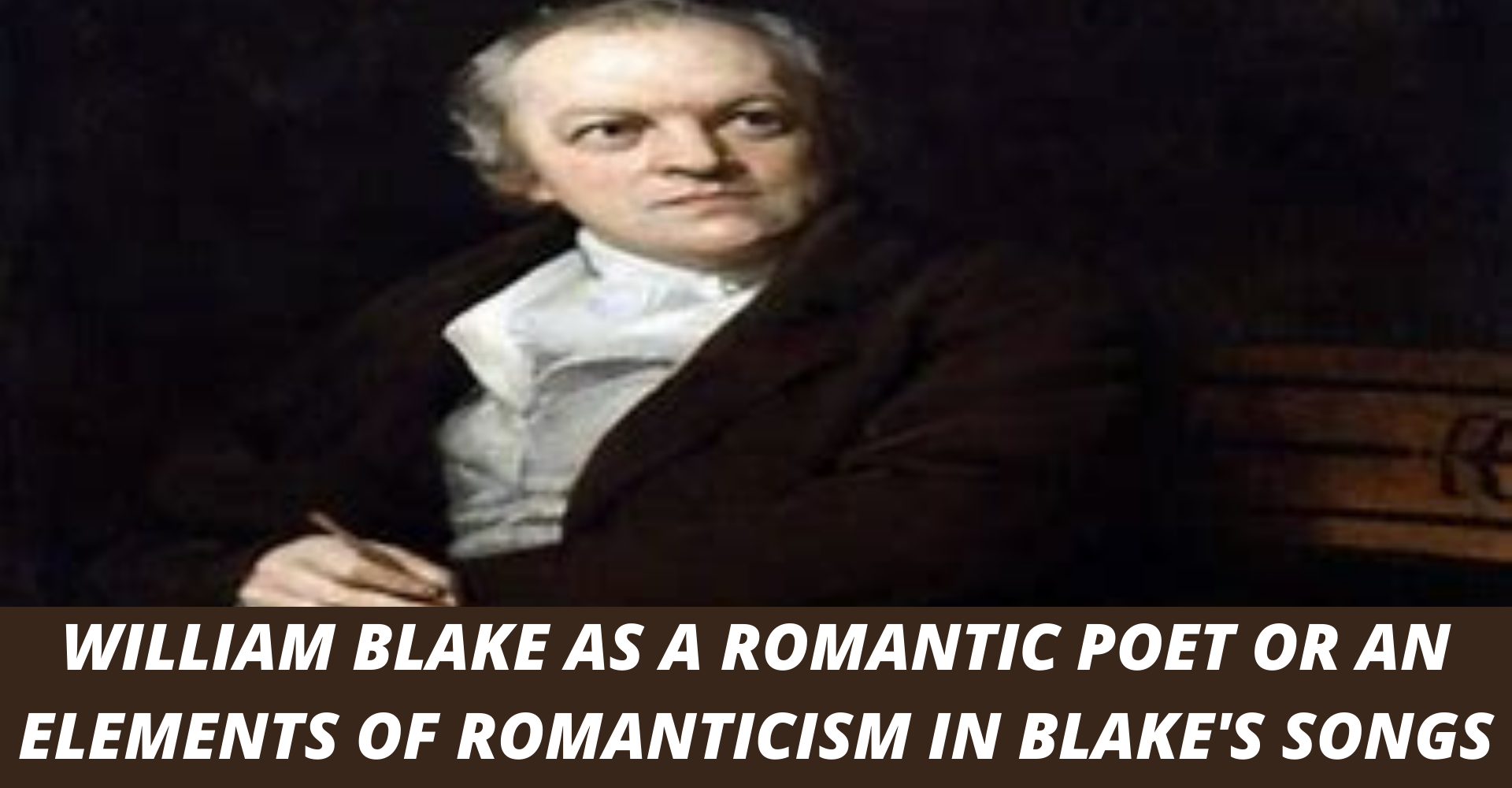Though chronological William Blake belongs to the age of pre-romantic poets, he sings from the innermost depth of his heart and registers a conspicuous change in style and expression. In the manner of great Elizabeth songsters, he writes with a firm artistic control and with the help of his creative imagination offers beatific and infernal visions of life in suggestive symbols. His romantic sensibility distinguished by love of nature and sentiments are quite evident in the portrayal of contradictory states of innocence and experience expressed in his ‘songs’ with a special fascination for the state of innocence in rural surroundings, he reveals are genuine feelings for the suffering humanity.
To begins with, in London we find Blake walking like a republican spirit, up and down the street near the Thames hearing the cries and agonies of men, children, chimney sweepers, soldiers and the worst of all the youthful harlot’s curse:
“But most through midnight streets I hear
How the youthful Harlots curse
Blasts the new-born Infants tear
And blights with plagues the Marriage hearse”
Here sensitive reader finds Wordsworthian lament and pathos of ‘what man has made of man’. Again Blake anticipates Shelley in attacking at the kings, the priests and the oppressive rulers. His ‘A little Boy lost is a blow at the cruelty of religion and ‘The Chimney Sweeper’ is an attack against the unjust and inhuman was of the industrialists.
Blake’s deep love for nature and rural scene are perceptible in the introduction to the ‘Song of Innocence’ where we find the poet roaming about the wild valleys and ‘piping songs of pleasant glee’. In Blake’s vision of the state of innocence, the innocent appears as sheep by the shepherd or as children taken care of by the parents. His humanity and democratic vision has a comic scale which does not exclude even a small Emmet. In ‘A Dream’ we find an Emmet losing its way in the dark and wailing for its children whilst a glow worm console her:
“I am set to light the ground,
While the beetle goes his round:
Follow now the beetles hum,
Little wanderer hie thee home”
Blake’s mysticism too is a romantic note. It is a suggestion and taking the help of his emotion and imagination finds outlet in suggestive symbols. His reason of ‘The Tiger’ as ‘burning bright in the forest of the night’ symbolise the terrible spiritual for us which can break through repression and superstition and award the soul a perfect freedom. In ‘Ah! sunflower’, he refers to the unsatisfied desire of the young men and women who are starred of love and says:
“Rise from their grave and aspire where my sunflower, wishes to go”.
Needless to say, the poet’s sunflower is nothing but his soul and it longs for the natural state of innocence so that it may reside permanently by the side of God – the creator.
As far the expression in style used in the ‘songs’ are concerned, they are also indicative of romanticism. Various stanzas forms have been used but the commonest form is the quatrain with which all kinds of experiment by shortening and lengthening the lines have been done. This reveals that Blake as a poet believes in what Coleridge calls the ‘organic form’ and not in the procrustean tyranny of style found in classical poetry C.M. Bowra rightly remakes that no English poet except Shakespeare has written songs of such innocence and experience.
PLEASE HELP ME TO REACH 1000 SUBSCRIBER ON MY COOKING YT CHANNEL (CLICK HERE)











